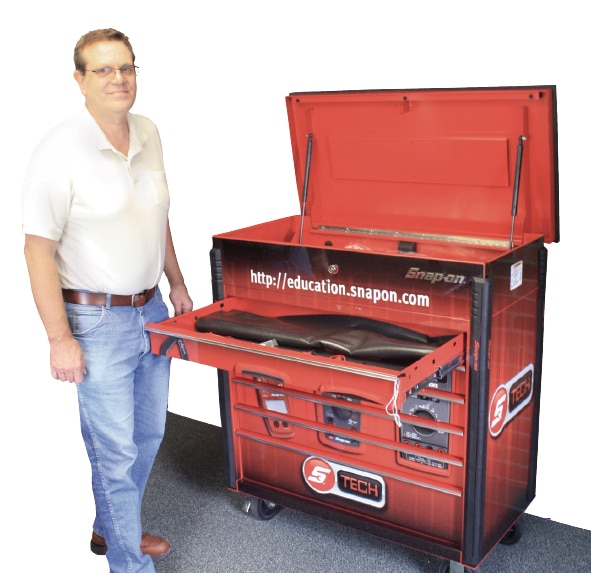UMFS’ CHARTERHOUSE SCHOOL wants to make the transition to the workforce easier for students with autism and other neurological differences. Thanks to a gift from donors Larry Murphy and Steven Bryan, Snap-on Tools certification is now an option.
A shiny red cabinet with 20 digital multimeters sits ready for students to diagnose circuits, learn about voltage and even test a battery. The Snap-on Technical Education Program is a component of a year-long foundations in technology elective. Delany Deavers, technology teacher, received his instructor certification in the Snap-on program from the National Coalition of Certification Centers.
Wade Puryear, UMFS vice president of education, said, “This program will give our students an opportunity to obtain a technical industry certification which will give them a huge leg up when applying for jobs. Learning how to perform a technical skill and gaining mastery in that skill creates a sense of self pride and identity that kids need to grow.”
“Technology today is much more than just computers,” Deavers said. Students work individually and in groups to create, develop and test innovative designs using engineering concepts. Hands-on projects help students interact with technology to solve problems. Deavers plans to have students use microcontrollers, small computers on a single integrated circuit, to operate a set of lights.
Charterhouse School hopes to expand its career and technical education offerings. The culinary arts program is expanding and plans are in the works to convert a portion of the maintenance garage on the Richmond campus into an automotive training classroom. With more than 250 million registered vehicles in the United States, the need for trained technicians will always be there. “The skills that students will learn in the Snapon Tools automotive program will help them enter the workforce with a level of knowledge that will add value
for an employer,” Bryan said.
If enough students express interest, there’s even talk of starting a robotics team. The ‘how’ and ‘why’ of technology can transfer to careers in engineering, manufacturing, communications, transportation, construction, energy and even agriculture.
